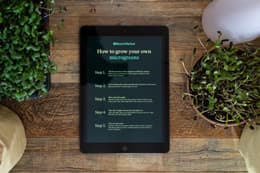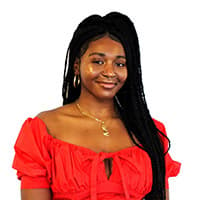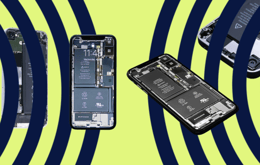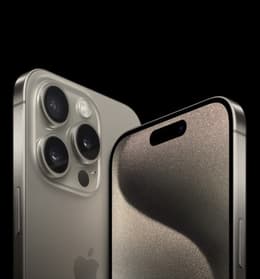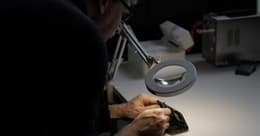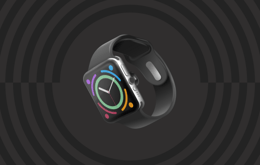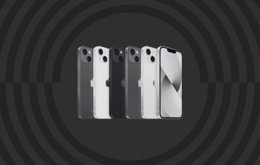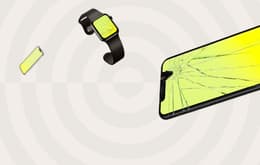

By selecting “Accept all” you allow Back Market and our partners to use cookies and to share your data for all these purposes. We and our partners use cookies and similar tools to measure our site's audience, evaluate the performance of our ads, and show you personalized content and ads.
Except for cookies that are essential for navigating our site, we use these cookies and share your data only with your consent. Learn more about cookies. You can change your mind and modify your choices at any time by going to the "Cookies and privacy settings" section at the bottom of any page. Read our Cookie policy and Data Protection Policy for more info.
Giving Back Market billboards a second lease of life
Updated on 6 February 2025
6 February 2025
4 mins read
Christine Ochefu
Journalist
Thanks to Life After Ad co-founder Patrick Vernuccio – better known as The Frenchie Gardener – our billboards have been upcycled into plant pots and used for urban gardening projects across Paris and London.
Have you ever wondered what happens to those big street ads after they get plastered around your city? Probably not! Well, one man Patrick Vernuccio – who goes by the moniker The Frenchie Gardener – has made it his mission to create a sustainable solution for all of this waste. His business Life After Ad was set up to give advertising billboards a second life and it felt fitting for Back Market to partner with them for our latest campaign.
After much mulching and some nifty upcycling, these ads have been transformed into grow bags to bring a breadth of biodiversity to not one but two cities.

AWAVISUALS
In Paris, The Frenchie Gardener has collaborated with an urban farm called CULTURES EN VILLE to host shrubs, aromatic herbs, and vegetables on the rooftop of La Ferme Suzanne. Even the soil is on its second life, made from local compost and substrates previously used to grow mushrooms in Paris.
Here, upcycling is more than just an eco-friendly gesture; it’s about creating essential urban green spaces and proving that every action counts towards building more sustainable cities.
In London Back Market took over a much-loved institution, Hackney City Farm, alongside urban gardener Jack Hodgson to host a microgreens growing workshop with a local school. As well as being an urban grower, Jack is a permaculture designer passionate about helping people interact with nature, especially those in industrial areas where growing space can feel scarce.
Thanks to his expertise, our talented team of youngsters gained some new knowledge on circularity, helping the environment — and, some tasty microgreens ready to grow (and eat) in their own homes.
See a snapshot of what we got up to below.
“It's important to learn about sustainability and regenerative practices at a young age, to respect nature and the issue we have with waste and a throwaway culture.”
A morning at Hackney City Farm
25 kids aged between 9 and 10 rocked up to site and gardener Jack got started, teaching the class how to grow their own greens using our recycled plant pots. The step-by-step guide came with the help of Back Market-supplied iPads (refurbished, of course) to help the little ones get stuck into planting.
“It's important to learn about sustainability and regenerative practices at a young age, to respect nature and the issue we have with waste and a throwaway culture,” says Jack. “With Back Market’s research, it was discovered that 96% of children understand sustainability and recycling are important to helping nature. This education at a young age encourages future generations to respect the planet and push for change.
And of course, sustainable practices don’t start and end with just tech. Microgreens, Jack says, can be more than just a tasty addition to your plate. Turns out, they’re a great way to encourage people to explore sustainable gardening practices. Each attendee was given a pack of seeds alongside their newfound knowledge, allowing them to continue the greens growing journey at home.
“I was inspired to grow food learning about the circularity of nature and closing loops,” continues Jack. “How plants and trees leaves fall, break down into the soil, become food for the fungi and bacteria in the soil therefore those nutrients become available for the plants, making it circular and regenerative.
“Closing these loops in farming and tech takes us from a society that has a throwaway linear culture to one that thinks about waste and secondary-use products. This is important so we don't take from a finite source that can't be continued and learn to love, reuse, repair and recycle what we have.”
It’s a practice we preach here at Back Market. When our sellers refurbish technology, extending the lifecycle of our devices and curbing e-waste, it helps protect the environment. It’s part of what we champion as a circular economy model; prioritising reuse over disposal, and preventing millions of devices from ending up in landfills each year.
So the next time you go to chuck something in the bin, think twice. The planet will thank you.


